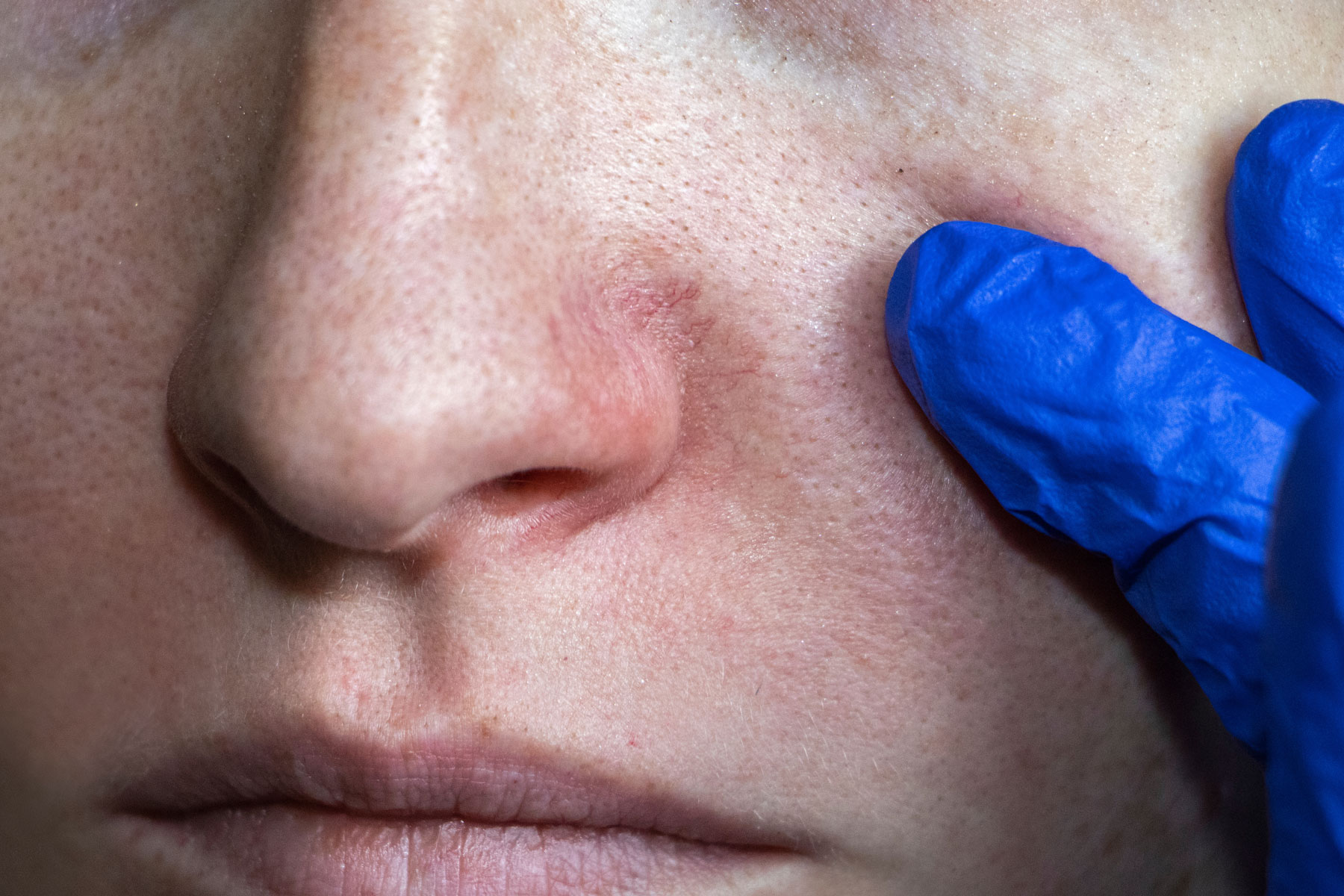What Is Cocaine Nose?

Cocaine use can severely impact nasal health, leading to a condition commonly referred to as “cocaine nose.” This condition arises from the damaging effects that cocaine has on the nasal tissues. Understanding what cocaine does to your nose is critical in recognizing the importance of seeking help.
Woodland Recovery Center offers specialized cocaine addiction treatment to address both the physical and psychological aspects of addiction. By providing a comprehensive approach to recovery, we help people overcome the challenges associated with cocaine use and work toward restoring their overall well-being. Call 662.222.2989 today to get started with your recovery.
Why Do People Choose to Snort Cocaine?
When people use substances like cocaine to feel “high,” they often want it to work quickly. For this to happen, the substance has to enter the bloodstream and reach the brain. Snorting cocaine is one of the fastest ways to get it into the bloodstream, as it bypasses the liver and goes straight to the brain. However, this method of use can have severe consequences on nasal health.
How Cocaine Damages Your Nose
Cocaine is a powerful stimulant that constricts blood vessels, leading to decreased blood supply to the nasal tissues. This lack of blood flow deprives these tissues of essential oxygen and nutrients for proper functioning. Over time, repeated use of cocaine can cause significant damage to the nose’s delicate tissues, resulting in a range of physical symptoms such as:
- Nasal congestion
- Runny nose
- Frequent nosebleeds
- Sinus infections
- Loss of sense of smell or taste
- Perforated septum (a hole in the cartilage that separates the nostrils)
These physical symptoms can also lead to more severe complications, such as chronic sinusitis and even permanent damage to the structure of the nose.
Short-Term Effects of Snorting Cocaine
While snorting drugs like cocaine makes people feel the effects very quickly, it can also rapidly lead to nasal issues. The fact is, the nose is simply not built to withstand snorting powders repeatedly. Hairs in the nose are actually meant to keep dust and debris from being snorted into the lungs and sinuses.
Each time a person snorts cocaine, they bypass the body’s natural safeguards, often leading to issues. Even a single use can cause nosebleeds, swelling, lung infections, and nasal blockage. These problems might not be from cocaine itself but from other ingredients added by dealers to increase volume. Some of cocaine’s added ingredients can include:
- Powdered vitamins
- Laxatives
- Talcum powder
- Creatine powder
- Powdered detergents
- Fentanyl or other synthetic opioids
These substances can increase the risk of infection and severely damage nasal tissues.
Long-Term Effects of Snorting Cocaine
Cocaine causes numbness, and in early dentistry, it was used as a local anesthetic. This numbing reduces blood circulation in the affected area and, over time, can cause significant issues in the sinuses and nostrils with long-term use. Long-term effects on the nose and sinuses include:
Deviated Septum
The septum is the piece of cartilage in the middle of the nose that separates the nostrils. Over long-term periods of cocaine use, the cartilage and mucus lining of the septum gets extremely irritated, even to the point of altering its shape. This leads to a crooked appearance of the nose and can lead to health concerns such as difficulty breathing, pain in the nose and sinuses, sinus infections, and headaches.
Perforated Septum
Over time, reduced blood flow to the nose can cause a perforation, or hole, in the septum. Without blood flow, oxygen can’t reach the septum’s cells, which is vital for healing. Continued cocaine use can enlarge the septum hole, leading to sinus health issues. This tissue death is called “nasal necrosis.” Damage can progress to the point where the cartilage erodes completely, resulting in a condition known as “saddle nose,” which causes the nose to appear wide and flat due to lack of support.
Damage to the Hard Palate
The hard palate is the bone on the roof of the mouth. Long-term cocaine use can damage the roof of the mouth in the same way it damages the septum and sinuses. The bone on the roof of the mouth may start to wear away, leading to holes. The damage to the palate is known as “palatal perforation,” and it can create nasal discharge, difficulty swallowing, changes in speech, and additional dental problems.
Is It Possible to Reverse Cocaine Nose Damage?
Reversing cocaine nose damage is challenging, but it may be possible depending on the severity and duration of cocaine use. Early intervention is crucial, so seeking medical help as soon as symptoms arise can increase the chances of recovery. While mild damage may heal with cessation of use and proper healthcare, more severe cases might require medical interventions or surgery.
Here are some common treatments and steps to consider:
- Stop cocaine use – The first and most important step is to stop cocaine use to prevent further damage.
- Medical check-up – Consult healthcare professionals for an evaluation to understand the extent of the damage.
- Medications – Doctors might prescribe medications to help reduce inflammation and treat infections.
- Nasal sprays – Saline nasal sprays can help to keep nasal passages moist and reduce congestion.
- Surgery – In severe cases, surgery might be necessary to repair damaged tissues or structures.
- Follow-up care – Regular follow-up visits are essential to monitor healing and prevent future complications.
Overall, while the road to recovery can be difficult, with the proper steps and support, improvement is possible.
Woodland Recovery Center Can Help with Cocaine Addiction
Woodland Recovery Center offers several treatment options for cocaine addiction. We believe that every client is different, and each treatment plan is tailored to the individual client.
The first step of most treatment plans will be to cleanse your body of harmful substances through our medical detox program. Our team of medical professionals will monitor your progress and provide medication-assisted treatment to ease withdrawal symptoms.
Once detox is complete, our addiction treatment program focuses on helping clients develop healthy coping mechanisms, address underlying issues that may contribute to addiction, and learn relapse prevention techniques.
We also offer specialized treatments for co-occurring mental health conditions, as many people with cocaine addiction also struggle with other mental health concerns. If you or a loved one is struggling with cocaine addiction and its effects on nasal health, know that help is available.
Call Woodland Recovery Center: Cocaine Addiction Is Challenging, But Your Resilience Is Stronger
Our team at Woodland Recovery Center understands the challenges of overcoming addiction, but we also believe that people have the strength and resilience to overcome them. With our specialized cocaine addiction treatment, you can find healing and restore your overall well-being.
Call 662.222.2989 or contact us online today to speak with someone from our team and discuss your treatment options. You don’t have to face cocaine addiction alone—let us help you on your journey to recovery.


